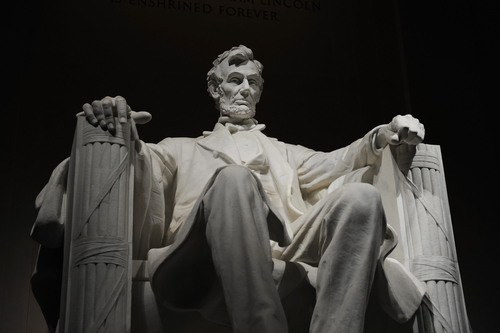
There are going to be countless post-mortems written about the 2016 election and what lessons we need to learn from it. Here’s my contribution.
Ultimately, there was nothing magical about Trump the candidate. He didn’t win over huge numbers of Obama voters to his cause, he didn’t tap into a hitherto unknown faction of the electorate, he didn’t excite or energize people who were formerly uninterested in politics. He got about the same number of votes that Republican candidates always get, from the same demographics that Republicans always get.
On paper, the young, liberal, multiracial Obama coalition is bigger than the older, whiter conservative base. Arguably, Hillary Clinton proved that by winning the popular vote. Even so, she just couldn’t get them to turn out in sufficient numbers in the swing states. Why that is is a vitally important question, and I’ve got some ideas I’m hoping to write about in a later post.
But today, I want to focus on something different. I think we white people need to have a serious conversation among ourselves about what we stand for.
We like to think that race and gender don’t matter in America anymore, that open prejudice is a dwindling relic of history. We like to think it’s something we defeated once and for all in the civil-rights era, or the feminist era, or with the election of Obama, or at any of half a dozen other milestones, and that it’s no longer a factor in our politics.
But that’s not true. Prejudice is still with us, it hasn’t been vanquished, and it’s a powerful and dangerous force. This election proved it in the most horrifying way possible.
Trump, more blatantly than any candidate since George Wallace, premised his campaign on appealing to bigotry. He degraded women, condescended to black people, insulted Latinos, demonized Muslims. He didn’t bother to hide his ties to the racist, misogynist, anti-Semitic “alt-right” faction. He could barely stir himself to disavow the Ku Klux Klan. But he still won, and he did it on the strength of his white supporters.
In fact, you can infer that Trump’s appeal to bigotry was a powerful force in his favor. It persuaded his supporters to overlook a cornucopia of blunders, gaffes and scandals which would and should have doomed any other candidate. It’s not something they grudgingly tolerated, or glossed over, or convinced themselves to look past. It’s the thing they loved most about him – that he was open about what he was and didn’t try to hide it or disguise it with dog-whistle language.*
If the United States of America were the welcoming, tolerant melting pot we imagine ourselves as, then a candidate who trafficked in these noxious ideas should have been defeated in a landslide. White people should have joined with people of color in a massive and decisive repudiation. That we not only didn’t do that, but actually elected him to the highest office in the land, is a stain on our national soul we’ll never be able to erase.
We need to take a searching look at the intolerance that’s flourished among us, that we’ve allowed to persist. We need to ask ourselves why, for white voters, bigotry in a candidate can be an asset rather than a detriment. We need to examine, in a critical way, the chasm between our post-racial fantasies and the ugly reality.
To be clear, I’m not just laying the blame on white conservatives. Nor am I saying it’s all the fault of older whites, or evangelical Christian whites, or rural whites, or uneducated whites. I think the problem goes much deeper than that, and that it’s something all of us white people have to confront. Since my readership, like most atheist blogs, is largely white, I think this is a good place to start.
I’m not seeking to accuse anyone in particular, nor to assign guilt. What I’m saying is that this is the time for us all to engage in serious self-examination.
Even if you don’t think of yourself as prejudiced, how sure are you that you don’t hold any unconscious bias? Have you heard bigoted remarks or witnessed prejudiced behavior that you laughed off, kept quiet about, or let slide in the name of keeping the peace with co-workers, friends or family? How much have you benefited from institutions that uphold white supremacy, even if you had no part in creating them? Even if you‘re racially enlightened, how much have you done to spread that understanding to others who aren’t so tolerant? These are all things I’m asking myself.
The American electorate’s tolerance for bigotry is a full-blown crisis, and I don’t have the solution to it. But one thing I’m sure of is that we can’t expect people of color to solve it for us or to rescue us from its consequences. Nor will it go away on its own if we ignore it. Talking about it is just a first step, and a small one, but it’s where we have to begin.
So let’s talk. Fellow white people, what part did we play in creating this nightmare situation? And what can we do to remedy it?
* The alternative explanation, that Trump won by appealing to “economic insecurity”, is false. People making under $50,000, as well as people who named the economy as their top concern, went decisively for Hillary Clinton. The bulk of Trump’s support didn’t come from the rural, less-educated working class, but from college-educated, middle-class white people.